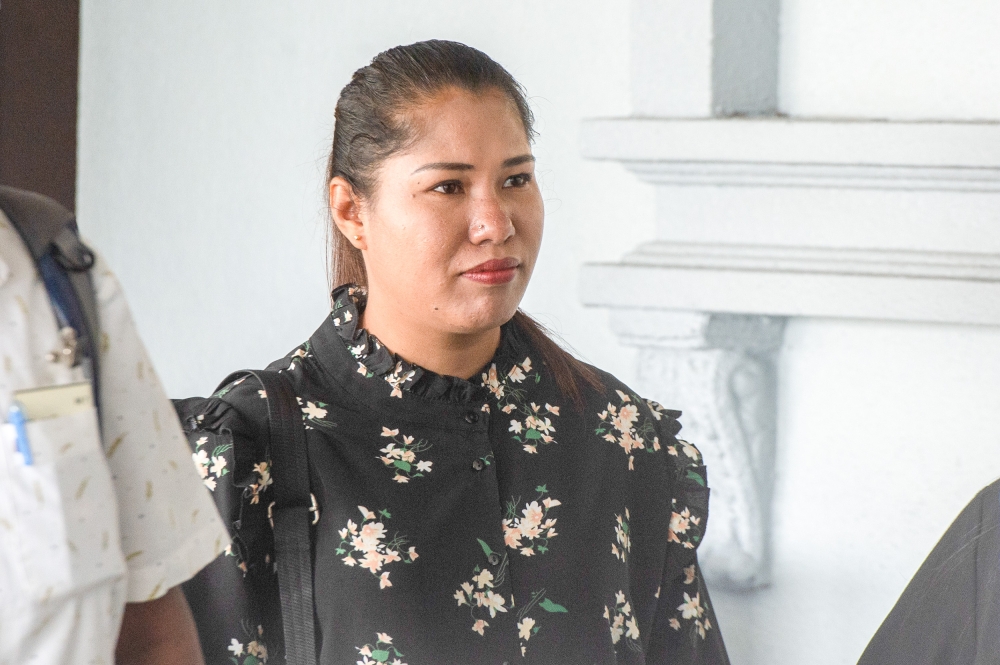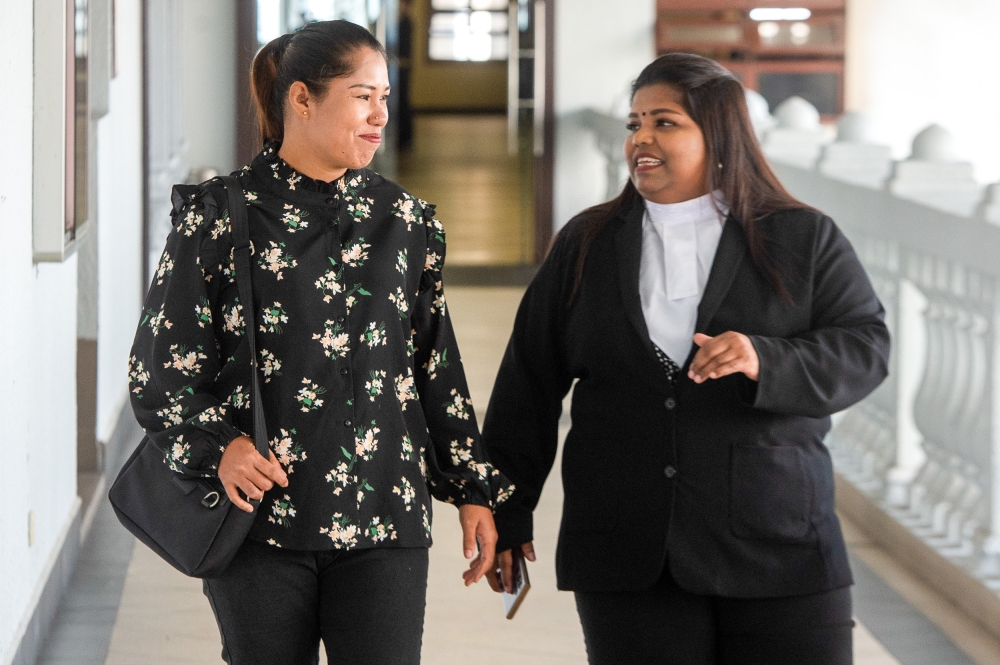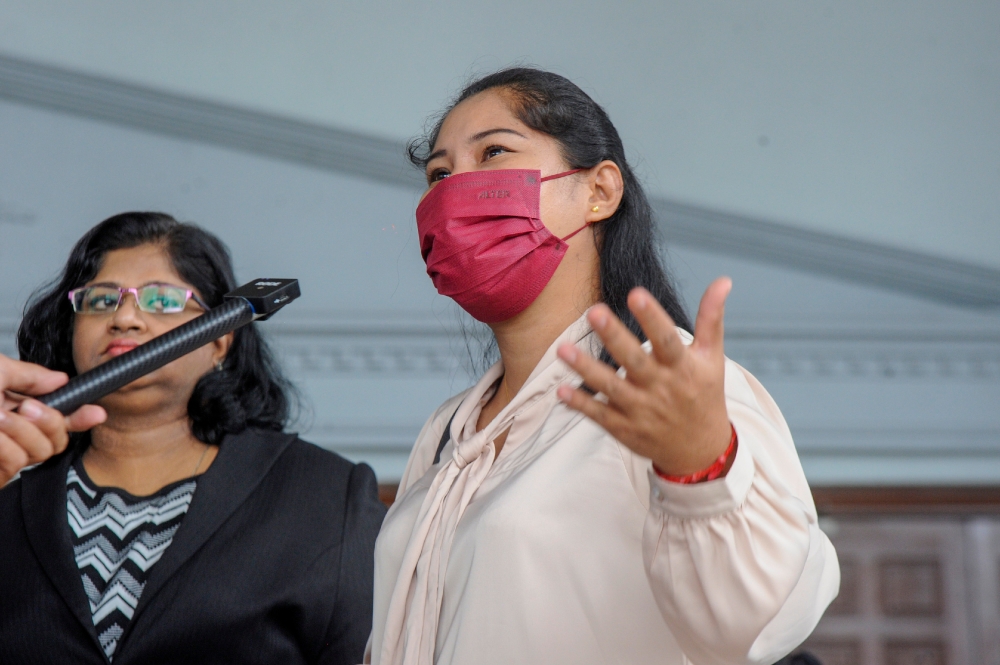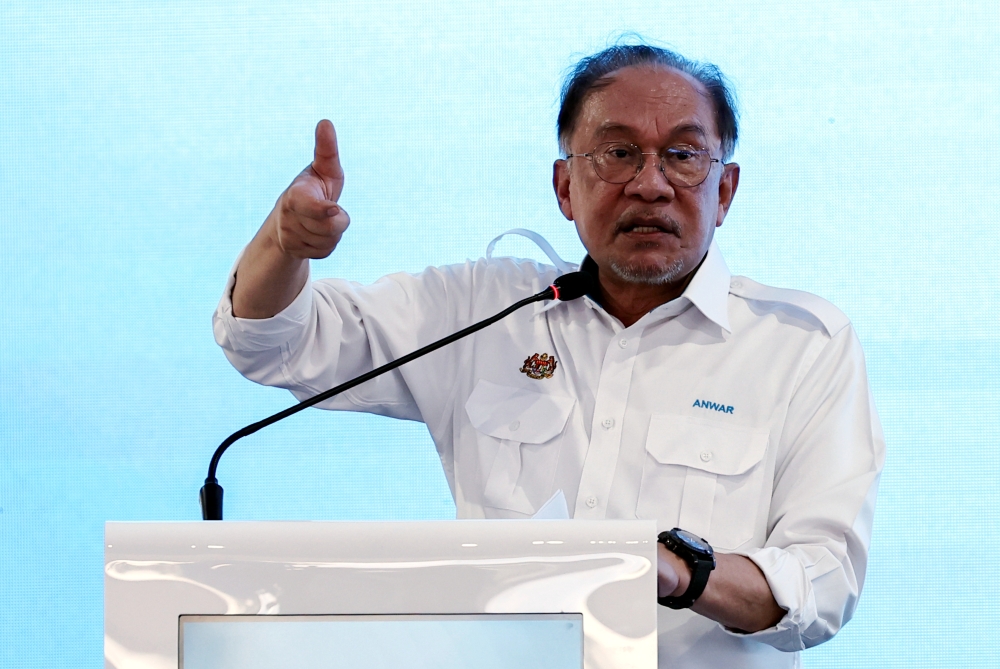KUALA LUMPUR, Sept 27 — High Court judge Hayatul Akmal Abdul Aziz will be interviewing Hindu mother Loh Siew Hong’s three children — who were unilaterally converted to Islam by their father without their consent — as part of court proceedings on the Perlis Islamic Religious and Malay Customs Council’s (MAIPs) bid to give Islamic education to the children.
Today, the High Court heard MAIPs’s application to vary or make changes to a custody order — which granted Loh full custody over the three children in her divorce with the Hindu-turned-Muslim ex-husband — in order to secure access to the children for purposes such as giving them Islamic lessons and bring them to the mosques for Islamic celebrations.
But early on during the hearing, the judge said it would be better for her to speak to the children, who had in the past been interviewed by another High Court judge.
“To my mind, I think it’s better for me to interview the children again, because this is after all about them,” the judge said, adding that she will interview the children this afternoon.
“The purpose I would like to interview, I was a family court judge before for quite a number of years, I make it a practice — maybe not for all files — to interview the children,” she later said.
Lawyer Mohamed Haniff Khatri Abdulla, who was representing MAIPs, said his client has no issue with the judge interviewing the children as it would be fair for the judge to get a full picture.
Loh’s lawyer J. Gunamalar also said she had also thought of inviting the judge to interview the children.
The judge then proceeded to hear arguments from lawyers on MAIPs’ application, before saying she will interview the children first and may hear further arguments from lawyers for all parties after that.
The three children are twin girls who will be turning 15 this year and a boy aged 12.
Loh is still challenging the validity and legality of the three children’s conversion to Islam, and the Court of Appeal is set to hear her appeal on this matter on October 19.
On February 17, MAIPs applied to vary the custody order, by asking to add on court orders, including for MAIPs to be granted supervised access once every two weeks to provide guidance and basic Islamic education to the three children.
In the same application, MAIPs also wants to be given access to bring the son for Friday prayers every week to any mosque located not more than 10km from the house of Loh and her three children.
In the application, MAIPs also wants to be given access to bring the three children to celebrate major Islamic occasions — Aidil Fitri and Aidil Adha — at any mosque, surau or government venue not more than 10km from their house.
Also in the same application to vary the custody order, MAIPs wants to be given access to provide financial aid to the three children who are in the category of asnaf or those eligible to receive aid from Islamic alms; provide education aid such as books, pens, computer to the three children; provide financial aid to the mother who is now the sole guardian as wages or for livelihood over her efforts and responsibility to raise and care for the three children; and to help Loh in buying food and drinks that is good and halal (or permissible to consume in Islam) for the three children.
MAIPs also wants to be given access once every three months to supervise and provide guidance to Loh to raise her three children in a conducive environment according to Islam, including but not limited to eating halal food, and access to go into their house for not more than an hour for each session.

In the hearing today, MAIPs’ arguments were based on their stance that the three children’s official status remains as Muslims, while Loh’s arguments are based on her stance that her three children’s conversion to Islam was invalid in the first place.
Among other things, Haniff argued that MAIPs has a statutory duty to assist the children and to work with others to carry out such responsibilities, citing Section 7(2)(b) and Section 7(2)(c) of Perlis’s Administration of the Religion of Islam Enactment 2006.
Haniff insisted that Section 7 still applies even if the children are not located in Perlis, and that the three children’s current Muslim status triggered MAIPs’s responsibility over them.
Under Section 7(2)(b) and Section 7(2)(c), for the purpose of MAIPs’s duty to promote and facilitate the “economic and social development of the Muslim community in the state of Perlis” consistent with hukum syarak or Islamic law, MAIPs is given certain powers such as providing financial assistance such as by giving loan or other methods or to carry out related activities with other bodies or any person including other government departments or authorities.
Even if the courts were to later rule that the three children’s conversion to Islam is invalid, Haniff argued that allowing MAIPs to now meet the three children for two hours every two weeks to give them Islamic lessons would not be prejudicial to either Loh or the children.
“Because two hours every two weeks is under supervision, and as long as they are Muslims, it is Majils Agama Islam’s responsibility, it is not just a statutory duty, but as Muslims to do so every second,” he argued, later also insisting that MAIPs has to carry out its statutory duty every second and that the court should order the variation now.
Noting that the three children had faced changes as they were previously converted to Islam and have now been living together with their non-Muslim mother since February 2022, Haniff questioned how it would be prejudicial to provide Islamic lessons to them even if the Court of Appeal or the Federal Court were to later cancel their conversion to Islam.
Haniff claimed that MAIPs has no intention to reclaim any financial aid if given to the three children and there would be no prejudice to vary the order on this.
Haniff also argued that communicating with Loh on halal and haram matters in food would not be prejudicial as it would not involve communications directly with children, ultimately saying that these three matters that MAIPs is applying for falls under MAIPs’ statutory duty and that MAIPs would fail as a statutory body if they do not carry these out.
The judge asked why MAIPs as a third party wants to offer such aid in a family matter between Loh and the ex-husband and regarding Loh’s argument that MAIPs could offer such aid through the ex-husband instead, also noting that MAIPs could assist non-Muslims if it wants to.
Haniff however argued that MAIPS is not a “complete stranger” to the case involving the custody order as the Court of Appeal had allowed it to intervene in this case, which enabled MAIPs to file the application to vary the custody order.
As for Gunamalar, she disagreed that giving MAIPs access to the three children to give them Islamic education would not be prejudicial.
“I totally disagree with that, the children were born and raised as Hindu, for a short time they were going to classes, even that was unilateral conversion, now they are back with their mother, they are back to Hinduism,” she said.
She argued against Islamic classes be given now to the children pending the Court of Appeal’s decision on whether to quash their conversion to Islam, saying that it would leave a big impact on children if they are given different teachings.
She said it could “haunt” the children forever and may leave them “troubled” and “traumatised” if they are “taken left and right”.
Stressing that the children were unilaterally converted and that it was illegal, Gunamalar argued that this means the children are not Muslims.
As for Haniff’s citing of MAIPs’s duty under Section 7, Gunamalar said that even if any Islamic council were to seek to intervene, it should be the one in Selangor and not Perlis.
Loh was also represented by lawyer Thian Yee Chin.
MAIPs was also represented today by lawyers Datuk Zainul Rijal Abu Bakar, Aidil Khalid, Danial Farhan Zainul Rijal, and Ali Huzaifah Sharif Ahmed.
Lawyers Malcolm Fernandez and Vhimall Murugesan held a watching brief for the ex-husband Muhammad Nagahswaran Muniandy.
Malcolm, who was invited by the court to speak, argued that MAIPs should be allowed to vary the custody order to gain access to the three children.
What happened before all the court cases
The three children were born to Loh and her ex-husband Nagahswaran Muniandy in a civil marriage, or when the couple were both non-Muslims.
The ex-husband had in 2019 taken the three children away while Loh was hospitalised with injuries which she claimed he had inflicted.
The ex-husband on July 7, 2020 converted to Islam, and brought the three children — when they were aged between nine and 11 — to also be converted to Islam without Loh’s consent. MAIPs said all these conversions took place at its office.
In 2021, the couple’s divorce was finalised and the High Court granted Loh full and sole custody of the three children.
But Loh was only reunited with her three children when the High Court on February 21, 2022 ordered the trio’s immediate release from alleged unlawful detention.



















